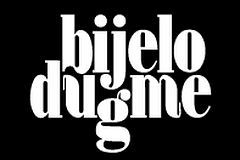Leb i sol (Macedonian: Леб и сол) is a Macedonian and former Yugoslav rock group founded in the 1970s by Vlatko Stefanovski (guitar), Bodan Arsovski (bass guitar), Nikola Kokan Dimuševski (keyboards) and Garabet Tavitjan (drums). Tavitjan ceded the drumwork to Dragoljub Đuričić for some of the albums, while Kiril Džajkovski replaced Kokan on Kao Kakao and Putujemo. Beside being the most eminent Macedonian band, they were also one of the most important acts of the Yugoslav rock scene.
"Leb i sol" is a traditional greeting which literally translates to "bread and salt". It is often used as an expression of spite or determination; e.g. "I will eat bread and salt if I have to, but I will not give in!", but that has nothing to do with the band's name. More commonly, distinguished visitors to villages and communities would be offered a piece of home-baked bread and a dip of salt as a traditional welcome, which is where the name of the band really came from. Their music combined elements of rock, jazz fusion and ethnic Macedonian music. As the band matured, the jazz influences became less obvious. However, in concert, Leb i sol performances of jazzed-up and lengthy versions of traditional ethno-folk classics such as "Jovano Jovanke" or "Aber Dojde Donke", were often received with great enthusiasm and cheer.
Leb i sol were very popular in the 1970s and 1980s and, while not selling as many records as some pop and folk acts, were very well known and respected and often sold-out venues in most of the larger cities in Yugoslavia. The first two albums are often considered foundational, while most are diverse enough to be, at least in part, accessible to a fairly wide audience. The influence of ethnic music and folk music of Republic of Macedonia are recognizable in the use of odd meters (5/4, 7/8) and non-traditional scales (e.g. the Phrygian dominant scale). While all the musicians were fairly accomplished, Vlatko Stefanovski is frequently regarded as an exceptional guitar virtuoso.








